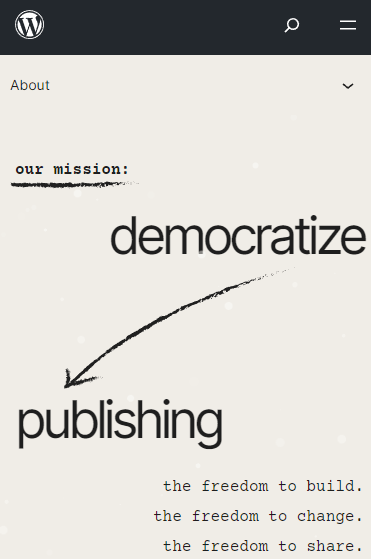Joost de Valk, co-founder of the Yoast SEO plugin, called for a change in WordPress governance that removes Mullenweg as the sole decision maker, offering to lead the transition to a more democratic and diverse board that is representative of WordPress stakeholders. Matt Mullenweg disagreed.
Critique Of Mullenweg’s Leadership
Joost says that he was prompted to speak out after Matt Mullenweg’s decision to pause WordPress services over the holidays which inadvertently caused an issue with WordCamp registrations, forcing Joost to open a GitHub ticket to fix the problem. The holiday pause made it clear to Joost one-person control of the WordPress project had become problematic.
Mullenweg’s leadership style was called into question, with Joost characterizing him as a Benevolent Dictator For Life (BDFL) whose rule was no longer benevolent. He cited Mullenweg from an interview where he states he doesn’t identify as a dictator and suggested the phrase “enlightened leader.” Joost scoffed at the idea, stating that many in the WordPress community would disagree with the self-description of “enlightened leader.”
WordPress Community Lacks Democracy
The blog post notes the irony the WordPress Project’s mission is to democratize publishing but the WordPress project itself far from democratic, essentially controlled by one person. He expressed the belief that the current governance structure doesn’t allow for diversity of opinions and that his restrictive control over the WordPress trademark is stifling growth.
Screenshot Of WordPress’s Mission Statement

On the lack of diversity of opinions he writes:
“You need many voices, many ideas, many backgrounds. You need to embrace diversity. Unfortunately, those with ideas that don’t follow the same direction as our current leader, are being shut down, quite a few even banned…”
One of the changes Joost proposes is a loosening of Mullenweg’s grip on the WordPress trademark to allow for more growth:
“The WordPress trademark is given to the public domain or otherwise dealt with in such a way that every company can freely say that they do ‘WordPress hosting’, ‘WordPress support’ etc. Not just because that’s the right thing to do in my mind, but because doing so means we allow growth of the terms and the concepts.”
Joost’s Role and Vision For Change
Lastly, Joost volunteers to lead the change at WordPress so that it becomes a truly democratic foundation with a governing board representing all the stakeholders.
He writes:
“Taking back the commons means that we try to hear every voice, be considerate of all the different use cases of that commons and bring us all forward.
…I’m here, and willing to lead through this transition.”
Among the changes that Joost proposes is a “federated” WordPress repository, a way for multiple plugin and theme directories can curate reviews and addition which then update to the other directories, decentralizing the official WordPress theme and plugin repositories.
He expects to enter discussions with others sometime in the middle of January 2025 to come up with a plan for how to move forward.
Mullenweg Rejects Joost’s Proposals
Matt Mullenweg commented on Joost’s blog post, offering a passive-aggressive dismissal of everything he proposed. His comment was veiled in politeness while handing out indirect criticism and a recommendation that Joost should leave the WordPress community.
These parts of Mullenweg’s response suggest that Joost should start his own community outside of WordPress:
“I think this is a great idea for you to lead and do under a name other than WordPress… There’s really no way to accomplish everything you want without starting with a fresh slate…”
Here is Mullenweg’s full response:
“I think this is a great idea for you to lead and do under a name other than WordPress. There’s really no way to accomplish everything you want without starting with a fresh slate from a trademark, branding, and people point of view.”
The Internal Struggle Is Already Happening
If Mullenweg resists change, an internal struggle within the WordPress community seems inevitable. In fact, momentum for this has already begun; a group of WordPress contributors recently signed an open letter seeking governance reform.
The open letter was written by:
- “Core committers and contributors
- Make/WordPress team elders and contributors
- Others serving in various community roles”
They wrote:
- “We object to the status quo, and believe the WordPress project’s current internal operating structure threatens the health and sustainability of the project and its community.
- We object to the continued opaqueness of the WordPress governance model.
- We object to one person, Matt Mullenweg, controlling all official infrastructure, including the project’s website, email systems, support forums, core, plugin, and theme repositories, update systems, security tools, communication channels, and other technical assets.
- We object to major decisions being made without community input, advice, or support.”
Change is coming. Joost’s proposal is a way to accomplish that change in a manner that protects the core principles and community of the WordPress open source project.
